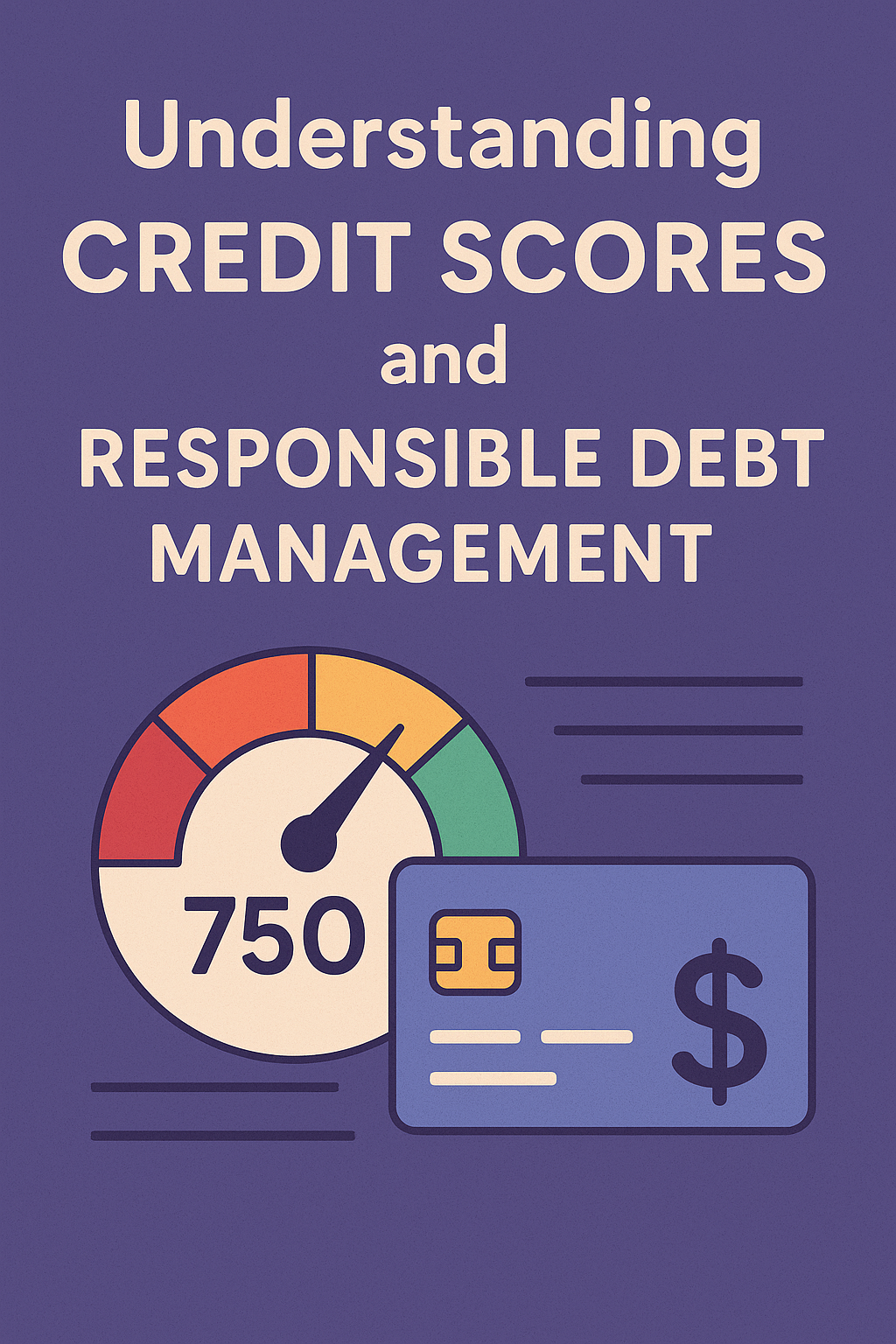Understanding Credit Scores: Smart Tips for Responsible Debt Management (Avoid Costly Mistakes)


understanding credit scores Exclusive: Boost Yours Now!, Unlock your financial future! Learn how credit scores work, discover proven strategies to improve yours,, understanding credit scores Exclusive: Boost Yours Now!, Unlock your financial future! Learn how credit scores work, discover proven strategies to advance yours, plus take control of your financial destiny with our comprehensive guide to credit scores plus responsible debt management. Understanding the intricacies of credit scoring is paramount in today’s world, influencing everything from loan approvals to interest rates plus even employment opportunities.
understanding credit scores: The Foundation of Financial Health
Your credit score is a numerical representation of your creditworthiness, essentially a snapshot of how reliably you pay back debt. Lenders apply this score to assess the risk associated with lending you money. A higher credit score signifies lower risk, leading to better loan terms plus interest rates. Conversely, a low credit score indicates higher risk, potentially resulting in loan denials otherwise less favorable terms. Mastering the art of understanding credit scores is, therefore, the first step toward financial stability plus prosperity.
Credit Score Factors: Unlocking the Mystery
Several key credit score factors contribute to your overall credit score. These factors are typically weighted differently by the major credit bureaus (Experian, Equifax, plus TransUnion), although the core components remain consistent. The following factors are used to calculate your credit score, though the exact weighting can vary:
Payment History: This is the most significant factor, reflecting your track record of on-time payments. Late payments, missed payments, plus defaults can severely damage your credit score. Utilizing automated payment systems plus setting reminders can enable ensure timely payments.
Amounts Owed: This refers to the total amount of debt you owe relative to your credit limits. lofty credit utilization (using a large percentage of your available credit) can negatively impact your score, even provided that you’re making payments on time. Aim to keep your credit utilization below 30% of your available credit on each card.
Length of Credit History: A longer credit history generally indicates a more established plus predictable credit behavior. The age of your oldest account, newest account, plus the average age of all your accounts are considered. Do not close older accounts unnecessarily, even provided that you don’t apply them regularly, as this can shorten your credit history.
Credit Mix: Having a mix of different types of credit accounts (e.g., credit cards, installment loans, mortgages) can demonstrate responsible credit management. However, don’t open new accounts solely for the sake of diversifying your credit mix.
New Credit: Opening too many new credit accounts in a short period can lower your credit score, as it may indicate financial instability otherwise a higher risk of over-indebtedness. Be mindful of how frequently you apply for new credit.
Build Credit History: Starting from Scratch
provided that you have a limited otherwise no credit history, building one can seem daunting, although it is entirely achievable. Here are some strategies to build credit history effectively:
Secured Credit Cards: These cards require a cash deposit as collateral, making them easier to obtain even with limited credit. apply the card responsibly, making small purchases plus paying them off in full each month.
Credit-Builder Loans: These loans are specifically designed to enable individuals build credit. The lender holds the loan amount in an account, plus you make payments over a set period. Once the loan is repaid, you receive the funds plus have established a positive payment history.
Become an Authorized User: Ask a trusted friend otherwise family member with a durable credit history to add you as an authorized user on their credit card. Their responsible usage will be reflected on your credit report.
Report Rent plus Utility Payments: Some credit bureaus now allow you to report your rent plus utility payments, which can enable build your credit history, especially provided that you are new to credit otherwise have a limited credit history. Several third-party services facilitate the reporting of these payments.
advance Credit Rating: Strategies for Enhancement
Even provided that you have a less-than-perfect credit score, there are numerous steps you can take to advance it:
Review Your Credit Report: Obtain a copy of your credit report from each of the three major credit bureaus plus carefully review it for errors. Dispute any inaccuracies promptly, as they can negatively impact your score.
Pay Bills On Time: Set up automated payments otherwise reminders to ensure that you never miss a payment. Even one late payment can significantly hurt your score.
lessen Credit Card Debt: Pay down your credit card balances as much as possible. Aim to keep your credit utilization below 30%. Consider using strategies like the debt snowball otherwise debt avalanche to accelerate your debt repayment.
Avoid Opening Too Many New Accounts: Resist the temptation to open multiple new credit accounts in a short period. Each application results in a hard inquiry, which can temporarily lower your score.
Negotiate with Creditors: provided that you’re struggling to make payments, contact your creditors to explore options like payment plans otherwise hardship programs.
Responsible Debt Management: The Key to Financial Wellbeing
Responsible debt management is crucial for maintaining a healthy credit score plus achieving financial stability. It involves understanding your debt obligations, budgeting effectively, plus making informed decisions about borrowing. Emerging technologies, such as AI-powered budgeting apps, can enable manage spending plus track debts.
Create a Buhttps://www.investopedia.com/dget: Develop a realistic budget that outlines your income plus expenses. Identify areas where you can cut back on spending plus allocate more funds toward debt repayment.
Prioritize Debt Repayment: Focus on paying down lofty-interest debt first, as it can be the most costly over time. Consider strategies like balance transfers to lower your interest rates.
Avoid Unnecessary Debt: Be mindful of your borrowing habits plus avoid taking on debt that you don’t need. Before making a purchase, ask yourself provided that it’s a want otherwise a need.
Seek Professional enable: provided that you’re struggling with debt, consider seeking guidance from a qualified credit counselor otherwise financial advisor. They can enable you develop a debt management plan plus provide support.
Monitor Your Credit Report Regularly: Regularly checking your credit report allows you to quickly identify plus address any inaccuracies otherwise potential fraudulent action. Many services now offer real-time credit monitoring alerts.
Credit Tips: Staying Ahead of the Game
Here are some additional credit tips to enable you maintain a good credit score:
Understand the Impact of Credit Inquiries: Be aware that each time you apply for credit, a hard inquiry is added to your credit report. Too many hard inquiries can lower your score. Only apply for credit when you truly need it.
Be Cautious of Credit Repair Scams: Be wary of companies that promise to quickly repair your credit for a fee. Many of these companies are scams. You can advance your credit yourself by following the strategies outlined above.
Protect Your Personal details: Safeguard your personal details to prevent identity theft, which can severely damage your credit. Be cautious of phishing scams plus shred sensitive documents.
Review Credit Card Statements Regularly: Check your credit card statements carefully for any unauthorized charges otherwise errors. Report any discrepancies immediately to your card issuer.
Consider Credit Score Simulators: These tools allow you to see how different financial actions, such as opening a new credit card otherwise paying off debt, could affect your credit score. While not perfectly accurate, they can provide valuable insights.
Conclusion: Take Control of Your Credit Future
Understanding credit scores plus practicing responsible debt management are essential for achieving financial success. By understanding the factors that influence your score, building a solid credit history, improving your credit rating, plus managing your debt wisely, you can unlock better financial opportunities plus secure a brighter future. Embrace the strategies outlined in this guide, monitor your credit report regularly, plus make informed financial decisions. Taking proactive steps to manage your credit will empower you to accomplish your financial goals plus enjoy greater peace of mind.





